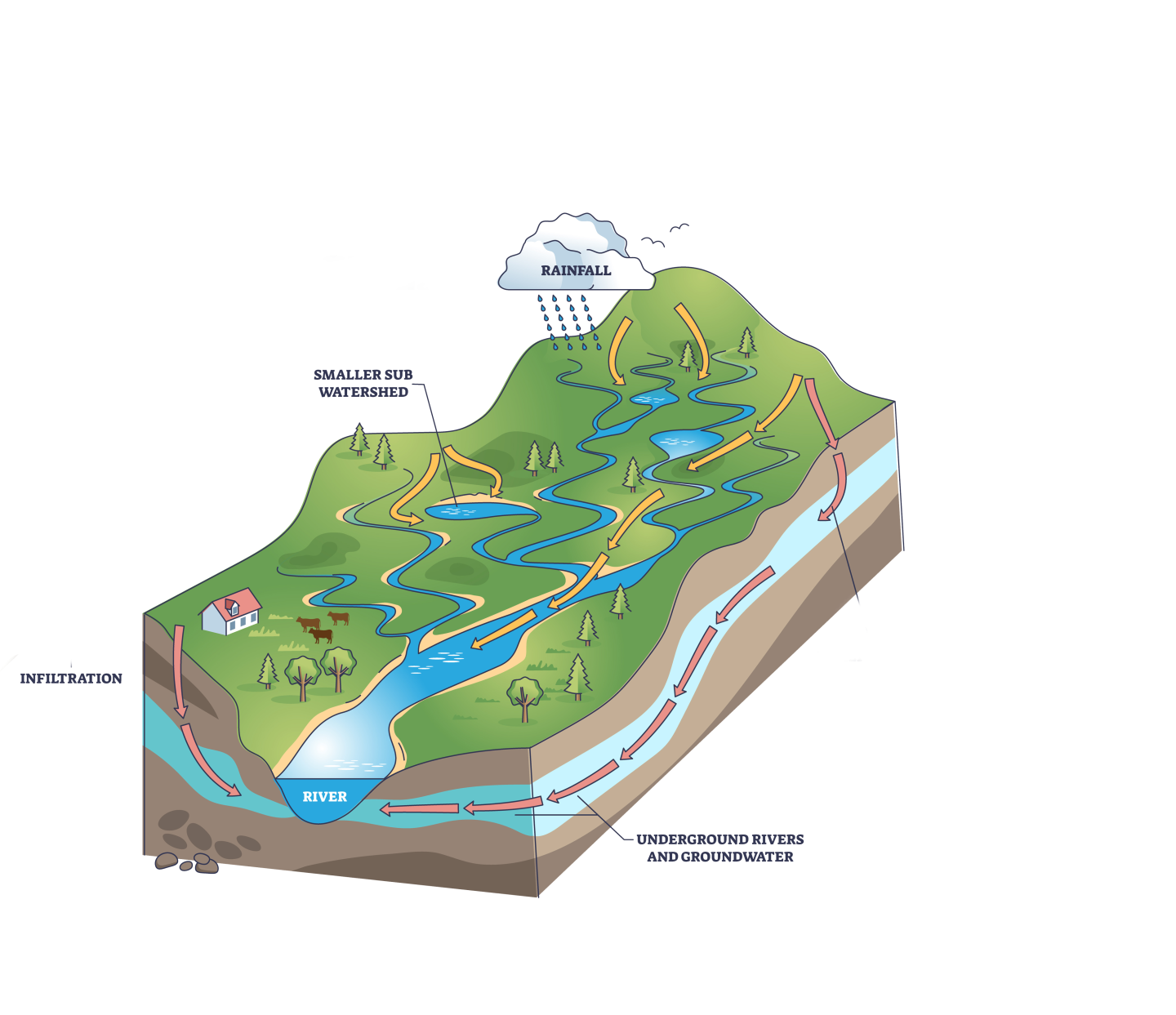A watershed is an area of land that drains all the water flowing under it and off of it into a specified body of water. It acts as a natural boundary, separating the runoff water that flows into different bodies of water, such as rivers, lakes, and oceans. Watersheds are crucial for the sustainability of ecosystems and support various life forms, making them incredibly important for several reasons.

Credit: www.nrcs.usda.gov
1. Water Supply
Watersheds play a vital role in providing us with clean and safe drinking water. The quality and quantity of water in a watershed directly impact the availability of fresh water for human consumption. Protecting and preserving the integrity of watersheds ensures a sustainable water supply for communities, farmers, and industries that rely on it.
2. Biodiversity and Habitats
Watersheds house diverse ecosystems that support a wide range of plant and animal species. They provide essential habitats for fish, amphibians, birds, and many other wildlife species. The health of these habitats is crucial for the preservation of biodiversity and ensuring the survival of various species. By protecting watersheds, we can safeguard these habitats and promote the conservation of wildlife.
3. Flood Prevention
Well-maintained watersheds help prevent flooding by allowing water to be absorbed into the ground and vegetation. Vegetation within watersheds acts as natural sponges, holding water during heavy rain events and releasing it slowly, reducing the risk of flash floods. Additionally, wetlands found within watersheds act as natural reservoirs, storing excess water during torrential rains and reducing the impact of flooding downstream.

Credit: www.amwater.com
4. Water Filtration
Healthy watersheds act as natural filters, purifying the water that flows through them. As water flows over the land, it goes through various layers of soil and vegetation, which help remove pollutants and impurities. This natural filtration process helps improve water quality and ensures that it remains free from harmful substances. By protecting and preserving watersheds, we can encourage the natural filtration of water and reduce the need for costly water treatment processes.
5. Recreational Opportunities
Watersheds offer a wide range of recreational opportunities for people to enjoy. They provide a setting for activities such as swimming, boating, fishing, and hiking. Clean and healthy watersheds ensure that these activities can be enjoyed without compromising the environment or endangering human health. By taking care of our watersheds, we can continue to enjoy outdoor activities in a sustainable and responsible manner.
Frequently Asked Questions Of Why Are Watersheds Important: Protecting Our Natural Resources
What Are Watersheds?
Watersheds are land areas that drain into a body of water such as a river, lake, or ocean.
Why Are Watersheds Important?
Watersheds are vital because they supply drinking water, support ecosystems, and provide various recreational opportunities.
How Do Watersheds Impact The Environment?
Watersheds play a crucial role in regulating the quantity and quality of water, sustaining biodiversity, and controlling soil erosion.
What Activities Can Harm Watersheds?
Pollution from industrial discharge, urban runoff, and agricultural activities can harm watersheds, impacting water quality and wildlife.
Conclusion
Watersheds play a significant role in our lives and are essential for the well-being of both humans and the environment. By understanding their importance and taking steps to protect and preserve them, we can ensure the sustainability of our water supply, protect biodiversity, prevent floods, purify water, and enjoy recreational opportunities. Let us strive to be responsible stewards of our watersheds for the benefit of present and future generations.

